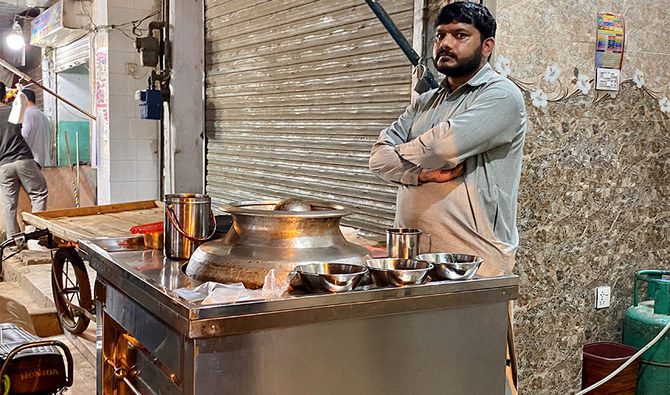ISLAMABAD: Kartarpura street has since time immemorial been the most favorite area for denizens of Rawalpindi and Islamabad to go for their predawn meal during Ramadan. But not this year.
The famous street would normally be bustling with food stalls serving up all kinds of Pakistani dishes and teeming with people waiting in long queues for their turn.
“Last year, no one would imagine this street could have such a deserted look. There would be so much rush during Ramadan that after 1:00 a.m. you would have to wait for at least an hour to get a place to sit for sehri,” said Muhammad Yousaf who sells siri paya in Kartarpura street.
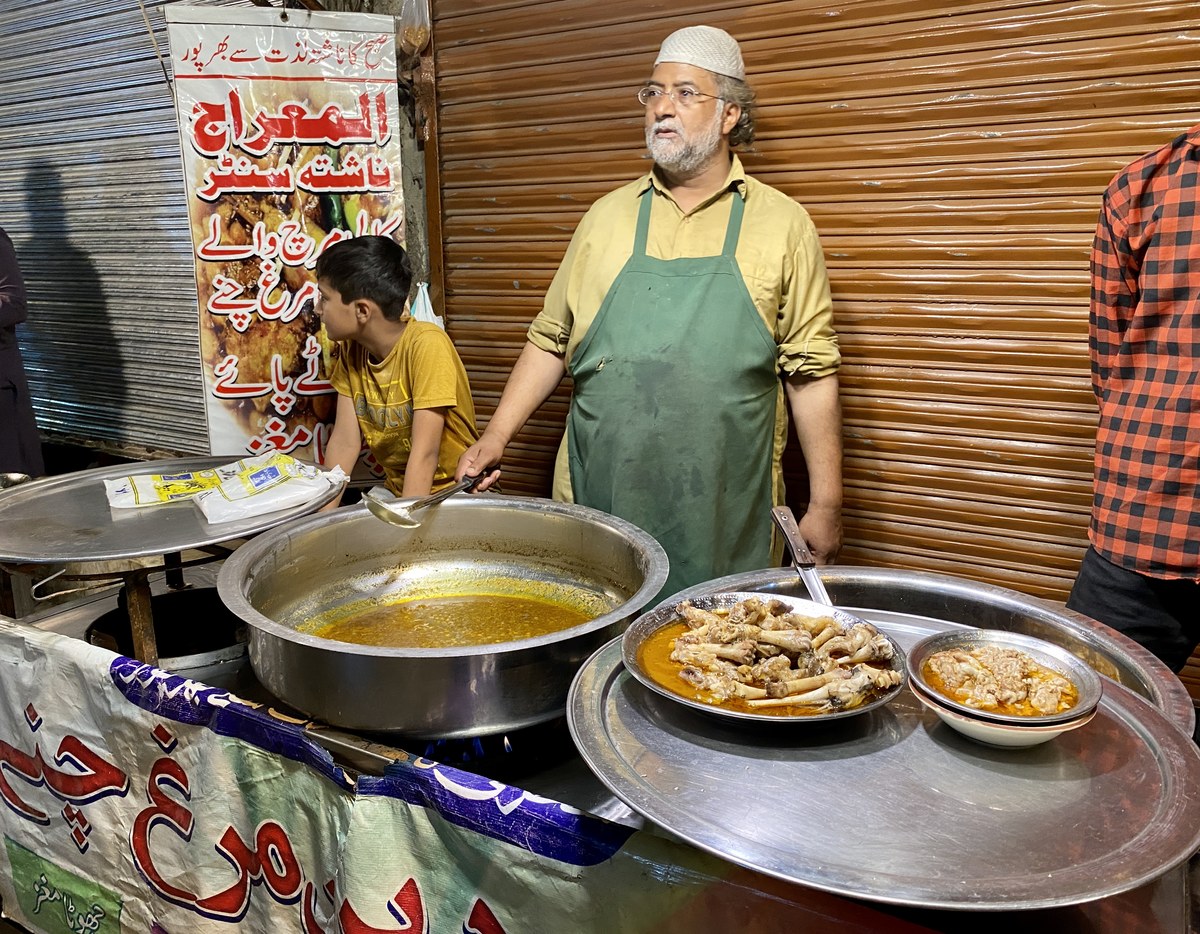
A vendor is waiting for customers in Kartarpura street, Rawalpindi on May 1, 2020. (AN Photo)
Yousaf told Arab News that during the fasting month he would have customers arriving from as far as Hassan Abdal or Murree — each over 60 kilometers away — to have for sehri, or sahur, his traditional breakfast dish of cow or goat head and trotters cooked overnight.
In the 19th century, the two-kilometer street was part of Rawalpindi’s Sikh neighborhood and the city’s main commercial area, but for the past few decades it has been known as “sehri food street,” famous for treats such as nihari — tender slow-cooked beef or mutton meat with bone marrow.
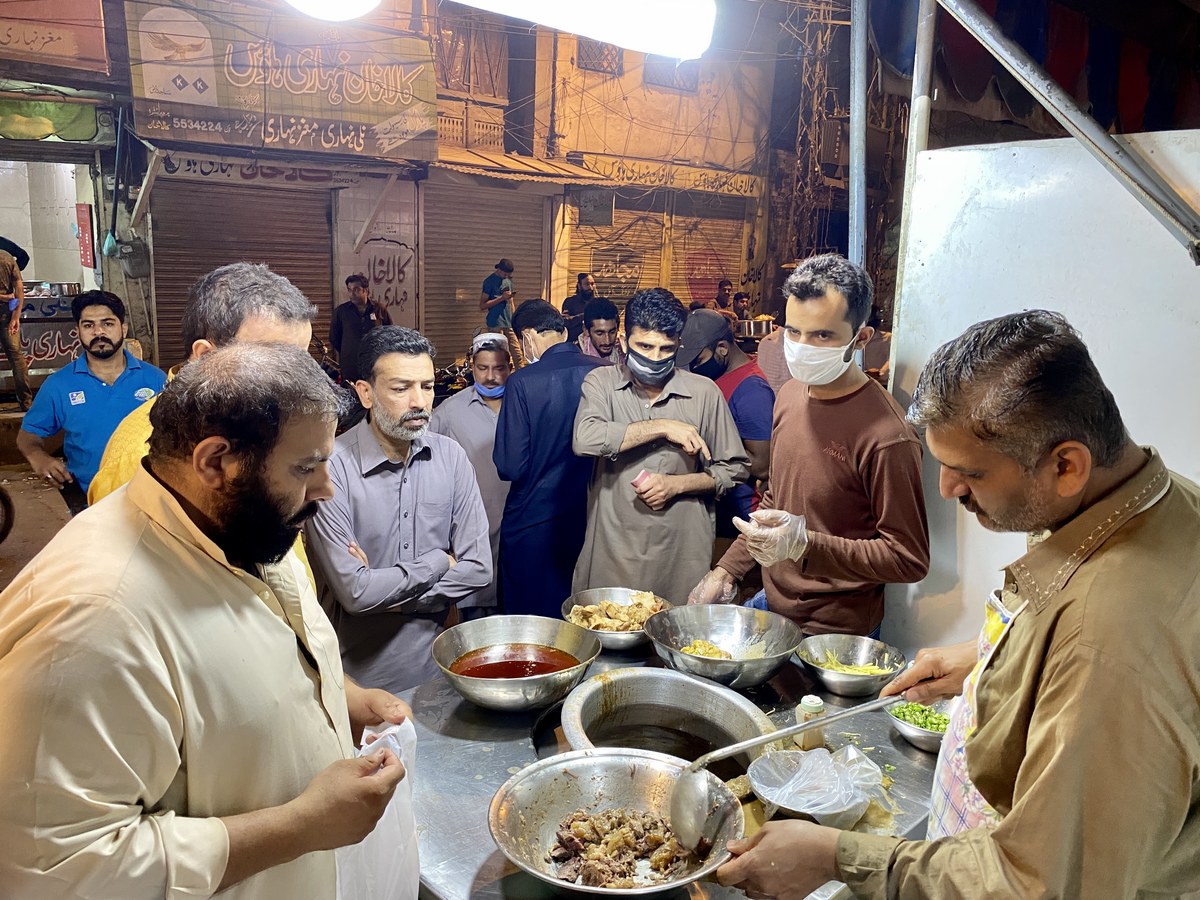
Not all of those who came to have their predawn Ramadan meal in the famous food street of Rawalpindi are observing social distancing. (AN Photo)
Other delicacies that draw crowds to the Kartarpura area are murgh chana — chicken meat cooked with chickpeas and spices — spiced bakharkhani flatbreads, or keema naan, which is a lamb meat mixture rolled into a leavened, oven-baked bread.
But the coronavirus pandemic has forced many restaurants and food stalls to shut down or retool to observe social distancing, casting shadow on the fasting month which is rooted in festivity, gatherings and togetherness.
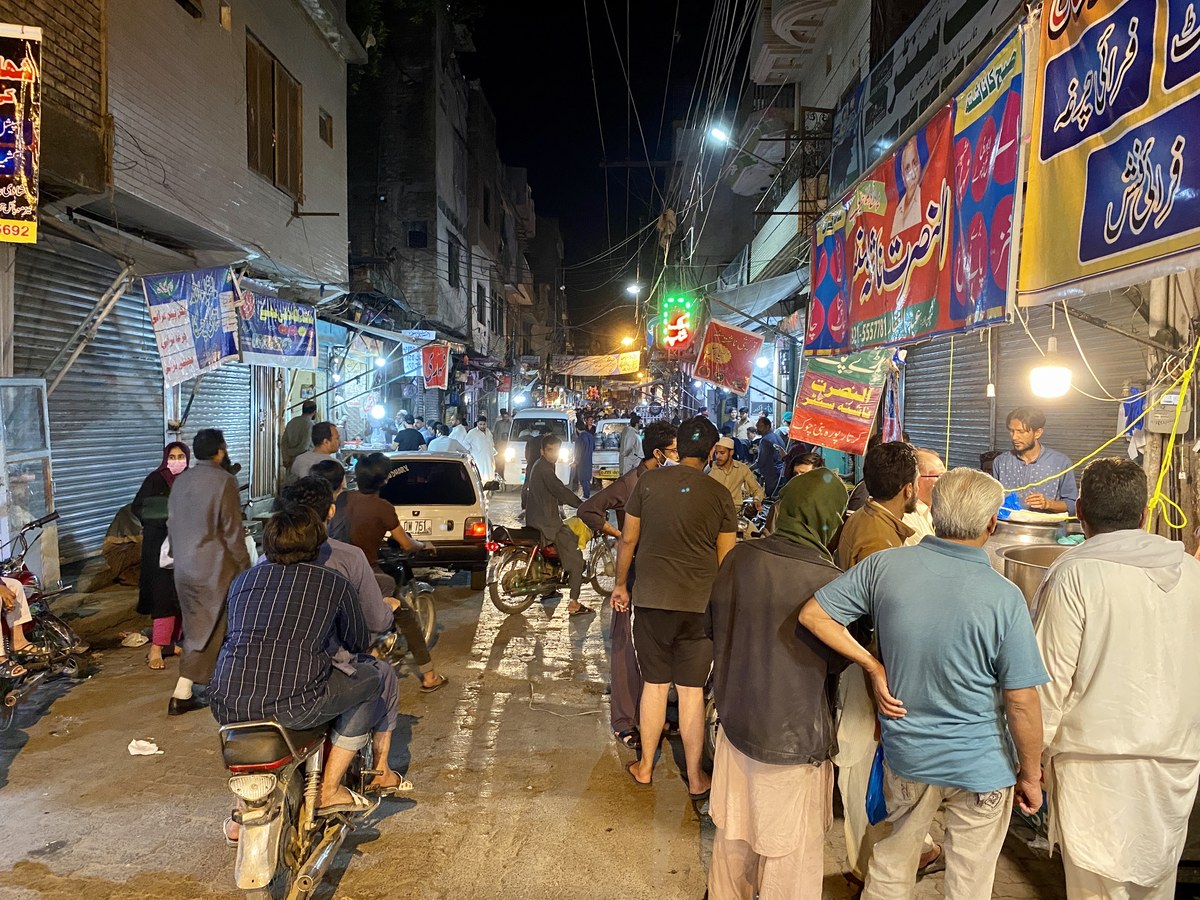
Kartarpura street in Rawalpindi has a deserted look on May 1, 2020. During Ramadan it would normally be teeming with people waiting in long queues at restaurants and food stalls to have their predawn meal with family and friends. (AN Photo)
The quiet on Kartarpura street reflects this enforced separation, which is particularly disturbing during the holiest month in the Islamic calendar.
“I established my nihari shop 25 years ago. We would earn about Rs25,000 ($155) a day during Ramadan, but this time we are only making about Rs8,000 by selling food for delivery,” said Sikandar Kala Khan, owner of “Kala Nihari,” the most popular nihari stall in the neighborhood.
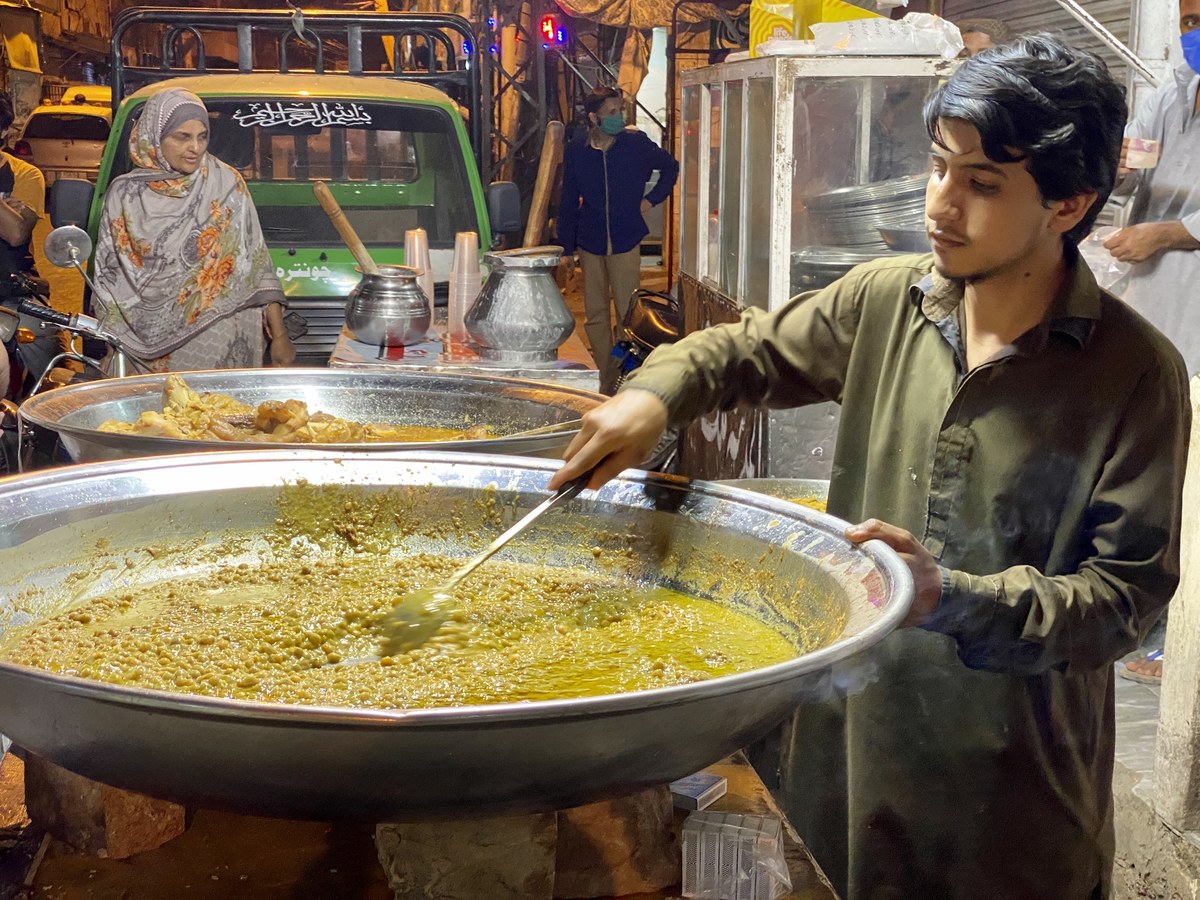
Chickpea masala sellers are waiting for customers in Kartarpura street, Rawalpindi on May 1, 2020. (AN Photo)
In previous years, demand for his nihari was so great that he would rent two floors for his business during the fasting month. And even that was not enough as people would flock to the place and wait in long lines to have their serving of the deep red stew.
“I come here for the special beef nihari. We regularly come during Ramadan to enjoy sitting on the street and eating with friends,” said Aimal Khan, a university student, “All of it is missing this time due to the coronavirus.”


